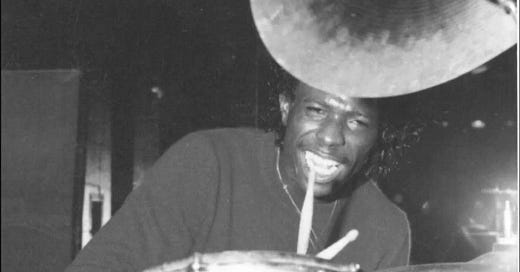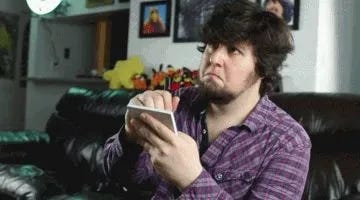Hello, Faithfuls,
A while back, I shared the opening of a short story draft with you, and your feedback was everything.
I want to get your thoughts on this, too.
I’m working on a historical political thriller short story, set in 80s Ghana.
Below is the opening scene, still in its early stages.
What do you think?
Does it pull you in?
Would you read on?
What do you want more or less of?
Be honest (but, you know, constructive).
I can’t wait to hear what you think!
George Darko’s Ako te brɔfo with its funk and disco elements synthesised to give a groovy vibe swaths Abeiku from the outside as he makes his way inside the club. His briefcase today is bulkier than usual. It is a battered black Samsonite with scuffed corners and a steel latch that clicks loudly whenever it locks. Abeiku smiles, returning the familiar nod from the guard at the entrance, patting him on the shoulder before dunking through the beaded curtain that keeps the club’s secrets from the outside world.
Inside, he scans the scene in front of him. The atmosphere is as he expects it to be. From where he stands, he sees the live band strategically placed in front of the neon sign reading “The Funky Spot”, announcing the club’s name in a bold pink and blue glow. The sign flickers slightly in rhythm with the bass as the band, charged by their music, entertains the crowd. Syncopated rhythms from percussion and funky basslines fill the atmosphere, making it impossible not to move. Horn stabs punctuate the arrangement, adding energy and texture and filling the room with an irresistible groove. Sharp, rhythmic guitar riffs intertwine with the infectious beat, the melodic vocals drip with playful satire.
Abeiku makes his way through the dancing crowd to the bar. The large, polished wooden dance floor is alive with dancers—a mix of young professionals, creatives and expatriates, all united by their love for highlife music and the nightlife. A disco ball spins above, scattering coloured light across the room, mingling with the smoke from cigars. People are dancing in synchrony to the band, their joy engraved on their faces.
It is one of the nights with no curfews. People want to enjoy it. With the airtight cutthroat paranoia in the air, after the coup d'état by Jerry John Rawlings, life in Accra has been different. You never know what comes next.
The bar, a semi-circular structure, glowing with soft yellow light from above, stretches along one side of the club. Abeiku takes off his hat, winking at the bartender, Adeloey, when he reaches the counter. She smiles warmly, though hardly affected by Abeiku’s pass at her. She seems to have gotten used to men at the club hitting on her as they drown themselves in alcohol. Barely seconds after his arrival, the nice lady slams a bottle of Star Lager Beer in front of Abeiku. It is done in an almost rehearsed way. The routine of it, glaring. He picks it up and makes his way to his favourite corner.
Thanks for taking the time to read and share your thoughts—it means so much to me!
Your feedback helps shape my stories, and I love having you along for the ride.
Leave a comment to let me know what you think. Can’t wait to hear from you!
I am taking notes.







The description of the setting (aside from the paragraph relating the recent coup) is rather bland for a place as exotic to Americans as Accra. More local colors, odors, textures would help. The greeting in the local language was good. You gave a fuller description of a briefcase than of the protagonist. The description of the briefcase is good but might be improved. Tell us about the protagonist. What are the symptoms of the paranoia in the air? Are soldiers with assault rifles in the streets? If you are not going to develop a character such as the bartender, don't bother to name the character. Of course in this short excerpt you have not had time to develop her character but you might at least give her an adjective (e.g. "wearily indifferent") as a hint that she may be developed later.
"It is one of the nights with no curfews. People want to enjoy it. With the airtight cutthroat paranoia in the air, after the coup d'état by Jerry John Rawlings, life in Accra has been different. You never know what comes next."
despite everything that came before this felt like the actual essence of the story—waht made it seem like a story that would matter, give the reader something to look forward to. in my head it'd do better as the first part of the story.